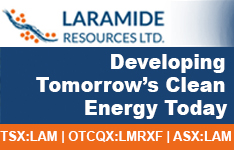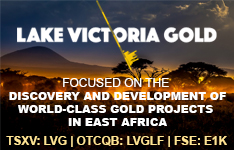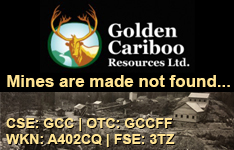The Life Sciences Report: How has the oncology environment changed in the past two years?
Michael King: That's a simple question with a complex answer. Fundamentally, patients have more choices. There are three main categories: traditional small molecule drugs, traditional antibody drugs and immunotherapy, which includes chimeric antigen receptor (CAR) T-cell therapies.
The industry is attacking more diseases and is producing greater improvements in response rates and in survival. We also are tackling indications that we didn't tackle two years ago, and are discovering target indications and mechanisms of action that were unknown two years ago.
For example, some of the CAR T-cell therapies are producing intriguing results in certain types of lymphoma. A recent report from researchers affiliated with Novartis AG (NVS:NYSE) at the University of Pennsylvania indicated complete response in a highly refractory patient with multiple myeloma. Small molecules, such as kinase inhibitors, are addressing newly discovered targets or known targets that hadn't been addressed before. Companies like Loxo Oncology Inc. (LOXO:NASDAQ) and Ignyta Inc. (RXDX:NASDAQ), for instance, are targeting the RET gene and are producing interesting results in patients who have RET indications or translocations.
"The immuno-oncology space will continue to explode."
One company we admire, Blueprint Medicines Corp. (BPMC:NASDAQ), is developing a fibroblast growth factor receptor 4 (FGFR4) inhibitor that blocks the expression of a certain growth factor in about a third of patients with liver cancer. Five Prime Therapeutics Inc. (FPRX:NASDAQ) has a novel FGF antibody, and is studying another antibody that blocks CSF1R (a macrophage colony stimulating factor). Bristol-Myers Squibb Co. (BMY:NYSE) has the first antibody, Empliciti (elotuzumab), to gain FDA approval for multiple myeloma. Johnson & Johnson (JNJ:NYSE), in conjunction with Genmab A/S (GEN:CO), is very close behind with daratumumab, an anti-CD38 compound.
These all are examples of compounds that hadn't achieved proof of concept two years ago. Now they are well past that stage, and companies have begun development programs in those areas.
TLSR: You're a veteran of the biotech industry. What does the current market look like relative to past fluctuations? What can we expect going forward?
MK: This recent volatility feels a lot like past volatility. What's different now is that this is a much better industry. We welcome volatility because it gives us a chance to accumulate positions in great companies that eventually will have significantly larger market caps.
Another difference is that, in many instances, we understand the targets and the biology of the disease better. This is true not just in oncology, but also throughout the biotech sector.
Looking at the broad biotech sectors, some recent advances improve efficacy in Alzheimer's disease or other central nervous system conditions like schizophrenia. They are being developed by companies like Acadia Pharmaceuticals Inc. (ACAD:NASDAQ) and Intra-Cellular Therapies Inc. (ITCI:NASDAQ), which just announced Phase 2 results for a major advance in the treatment of schizophrenia. That drug, ITI-007, appears very effective and lacks many of the side effects associated with the current generation of anti-schizophrenia drugs.
Returning to oncology, we now understand the biology of the different cancers better and have more effective ways to kill tumors. These new therapeutics are much better tolerated by patients and offer longer remissions and longer survival than previous therapies. While that continues, I think there will be a decent bull market in our sector.
TLSR: Within oncology, which subsectors are likely to experience the greatest growth in the next two to five years?
MK: If we focus on revenue growth, I think the immuno-oncology space will continue to explode. Checkpoint inhibitors are nothing short of revolutionary in terms of their ability to work in highly mutated tumor types to produce robust responses in a good portion of patients. In about a third of patients, checkpoint inhibitors produce long-lasting remissions, which some people are calling functional cures.
Checkpoint inhibitors work by taking the brakes off the immune system, but there is a whole side of the research that deals with switching the immune system on. Those stimulators are starting to make their way to the marketplace.
"Kinase inhibitors will be a fruitful area for investors. It's a target-rich environment."
Combination strategies will emerge that pair two checkpoint inhibitors or combine a checkpoint inhibitor with an immune system stimulator. Such therapies are likely to produce even better outcomes than either therapy alone.
I also remain optimistic about some of the kinase inhibitor drugs. They're very simple. They involve taking one or two pills per day and, in some instances, are highly effective and very well tolerated. They have all the characteristics of drugs that should be used for long periods of time.
For example, Imbruvica (ibrutinib), developed by Pharmacyclics Inc., showed effectiveness and long-lasting results. That led to the buyout of Pharmacyclics by AbbVie Inc. (ABBV:NYSE). I imagine there will be other opportunities to invest in companies like Pharmacyclics. Blueprint Medicines, Loxo, Puma Biotechnology Inc. (PBYI:NYSE) and Clovis Oncology Inc. (CLVS:NASDAQ) are some examples.
Kinase inhibitors will be a fruitful area for investors. It's a target-rich environment. Researchers will continue to find new, intractable targets, and companies are very adept at designing and prosecuting the trials of these small molecule drugs.
Finally, there are a bunch of antibodies to validated targets that are very promising. Five Prime, Xencor Inc. (XNCR:NASDAQ) and other companies are exploiting these antibodies. For example, Xencor recently signed an agreement with Amgen Inc. (AMGN:NASDAQ) to develop a bifunctional antibody to CD38, which I mentioned in the context of daratumumab. It will act as an immune stimulator. Regeneron Pharmaceuticals Inc. (REGN:NASDAQ) is also working on a family of bispecifics, so you'll see a lot more coming in the bispecifics area.
TLSR: Let's look at some of the companies you cover and how they have fared in the past two years. What makes them interesting for investors today?
MK: Compugen Ltd. (CGEN:NASDAQ) is a very interesting company. It is an antibody-focused company with a computational biology platform that enables it to search for novel checkpoint inhibitors that are in a family similar to Merck & Co. Inc.'s (MRK:NYSE) Yervoy (ipilimumab). While checkpoint inhibitors are the primary focus, Compugen also is researching antibody drug conjugates to some of the novel targets identified through its computational platform.
The company formed a world-class advisory board about a year ago, with some of the world's thought leaders in immuno-oncology. I've known this company for 15 years. Much of what Compugen does is very stealthy. I think it has some real capabilities and will be able to put forth some very interesting clinical candidates. We probably won't see any of those nominated until sometime in 2016. The market cap is under $300 million ($300M). Given that modest market cap, I think there's a lot of upside.
TLSR: Compugen's 2014 revenues, 2015 year-to-date revenues and earnings per share are all down. What does that portend for the future of the company?
MK: First of all, one should not concern oneself with revenue and earnings for these companies. That's not what drives them, except when the company is driven by partnerships.
Specifically, the revenue and earnings comparatives have been tough because, in 2014, Compugen had some revenues coming in from a collaboration with Bayer AG (BAYRY:OTCMKTS; BAYN:XETRA), the German pharmaceutical company. Those have not recurred so far in 2015, and Compugen has not signed any new deals this year.
"We are discovering target indications and mechanisms of action that were unknown two years ago."
Compugen also recently began to ramp up spending on its own pipeline of clinical candidates, which we applaud. The real path to value is when a company owns the rights to its molecules. Compugen wants to prosecute its clinical candidates further, either taking them all the way to market or to advanced stages of clinical development before partnering them, so it can retain more value.
TLSR: Do you have another company you'd like to discuss?
MK: We returned VBL Therapeutics' (VBLT:NASDAQ) rating to "Market Outperform" recently, after lowering it in Q1/15 because of a failure in the company's inflammatory program.
Our "Market Outperform" rating is based on VB-111, a viral, vector-based, tumor necrosis factor (TNF) smart bomb that tracks to the vasculature in the tumor. It is designed for glioblastoma.
VBL is approaching a very interesting time. Updated data presented at the European Society for Medical Oncology Conference suggests that the improved survival rates it has seen are the direct result of VB-111.
Glioblastoma—and particularly relapsed glioblastoma—is a deadly disease. The type of patients who participate in the VBL trial would be expected to survive only a very brief time, yet many are surviving 16 to 18 months. Therefore, it appears VB-111 has a very real effect.
Updated data will be presented in October at the 15th International Thyroid Congress in Florida. In November, additional data to be presented at the Society for Neuro-Oncology meeting will compare the results of the angiogenesis inhibitor Avastin (bevacizumab; Genentech/Roche Holding AG [RHHBY:OTCQX]) to results achieved from combining Avastin with VB-111. That, I believe, will drive home the message that the benefit is coming from the addition of VB-111 on top of Avastin.
In early 2016, the company plans to petition the FDA to submit regulatory filings based on data it will have to date, and to use the ongoing Phase 3 trial as supportive data for full approval. While I think the chances of that occurring are fairly low, if it does happen, it would be a big upside surprise for VBL. It could enable VBL to shave a year off its launch estimate, which currently is expected in 2018.
For a platform play, Pieris Pharmaceuticals Inc. (PIRS:NASDAQ) is interesting. It is developing a novel therapy based on human proteins called lipocalins. Pieris calls its protein molecules Anticalins. This could be an entirely new platform.
We expect proof of concept for its hepcidin program to be announced within six to eight weeks. Hepcidin is an engineered human protein in the hemoglobin synthesis pathway that regulates iron. For any engineered proteins in the human body, there are concerns that they may be immunogenic. But if this program can raise hemoglobin levels safely without antibody formation, I think this platform will gain a lot of credibility, and the stock may rise.
"We welcome volatility because it gives us a chance to accumulate positions in great companies that eventually will have significantly larger market caps."
In Pieris' immuno-oncology platform, the asset I like the most is the PRI-300 Series targeting 4-1BB (CD137). This is a very exciting, very early program. We have strong evidence from a variety of molecules that these immune system stimulants can produce strong, lasting results.
This company has a very interesting combination molecule that targets 4-1BB and HER2, the protein that is the basis of Genentech's Herceptin (trastuzumab). It's a well-established target in breast and other cancers. Pieris is trying to bring the cancer cell that expresses HER2 into proximity with one of the T cells so the T cells will recognize the cell as foreign and destroy it. This is very early in development. If there is proof of concept, the company has a very good chance of attracting a collaborator.
TLSR: Pieris has some powerful collaborators now.
MK: It does. It has collaborations with Sanofi SA (SNY:NYSE), as well as with Daiichi Sankyo Co. (DSKYL:OTCPK), Zydus Cadila (CADILAHC.NSE), Stelis Biopharma (a subsidiary of Strides Acrolab Ltd. [STAR:NSE; 532531:BSE]) and Allergan Inc. (AGN:NYSE). Pieris is doing the right thing, offsetting much of its development costs by partnering. The real return to shareholders, however, is when it can own assets and take them to more advanced stages of development.
TLSR: Can you tell us about another company?
MK: Infinity Pharmaceuticals Inc.'s (INFI:NASDAQ) stock has been a bit down lately. I think it's because investors are misinterpreting the meaning of AbbVie's acquisition of Pharmacyclics. Some people assume acquiring Pharmacyclics and Imbruvica (ibrutinib) implies AbbVie has less interest in Infinity. However, Imbruvica and Infinity's compound, duvelisib, block different proteins in the same B-cell receptor signaling pathway. Therefore, they could be considered complementary.
AbbVie is a great partner for Infinity because few companies control as much of the biology of the B cell as AbbVie does. AbbVie has half ownership of Imbruvica and half ownership of venetoclax, by Roche. Venetoclax blocks BCL2, which is a protein that prevents cancer cells from dying. Blocking BCL2, therefore, can elicit a profound effect. The early data coming back on venetoclax are very encouraging, with a high proportion of complete response rates.
AbbVie's interest in venetoclax, Imbruvica and duvelisib enables combination therapies that improve outcomes where one drug, alone, has been less effective. Maybe, through combinations, AbbVie will gain a footprint in multiple myeloma, which it wouldn't have without owning some part of the other agents.
Combinations of AbbVie's compounds may lead to potential cures for patients with chronic lymphocytic leukemia and diffuse large B-cell lymphoma. By blocking the multiple pathways the tumor uses to escape, AbbVie may expect much-improved outcomes. I believe Infinity's duvelisib will be part of the regimen for some of the more severe hematologic malignancies. Infinity's future looks quite interesting because of its relationship with AbbVie.
Infinity also recently announced a molecule that prevents an immune system cell—the M2 macrophage—from switching its subtype from pro-inflammatory to anti-inflammatory. In immuno-oncology today, there is a land rush to find targets among immune system cells that can be attacked by small molecules instead of antibodies, because the cost of antibody therapies is extremely expensive. Therefore, companies that can select targets in the tumor environment to enhance the body's immune response without making the cost hideously expensive have real promise.
TLSR: Is there another underappreciated company that you like?
MK: We thought this would be the year when the market came to appreciate the value of OncoMed Pharmaceuticals Inc.'s (OMED:NASDAQ) portfolio. It obviously has not. The stock is down for the year and from the company's investor meeting in June. That meeting should have helped the investment community recognize the intellectual horsepower of the OncoMed team. The stock started in January at $21.70/share. It reached $26.42/share in June, but by Sept. 25 had fallen to $14.68/share.
TLSR: What caused the fall?
MK: I think OncoMed has carried some negative stigma since its lead compound was briefly put on hold in 2013. Also, its development programs aren't in fashionable areas, like targeted kinases or immune checkpoint inhibitors, so the company is measured by a different yardstick.
"We like to invest in management teams that have successful histories."
To its credit, OncoMed has seven highly interesting antibody targets toward validated cancer stem cell targets. It is trading below a $550M market cap but has about a $300M technology value. It's simply too cheap for a company with seven clinical programs—and a $70M milestone payment coming when it passes the safety hurdle set by Celgene Corp. (CELG:NASDAQ) for its lead program, demcizumab. The target date hasn't been disclosed, but I predict that milestone will be reached in early 2016. That should help investors get a better sense of the safety profile of this molecule.
We think this is the one of the best opportunities that we have in our coverage universe for long-term appreciation. I really like the OncoMed biology, and the management and scientific team. For long-term investors, this is a great opportunity.
TLSR: Are there any other companies you're following that we should mention?
MK: Calithera Biosciences Inc. (CALA:NASDAQ), in the cancer metabolism space, has a $133M market cap. Its lead program, CB-839, blocks the uptake of a sugar called glutamine. It has very interesting activity in a few different tumor types, like multiple myeloma and triple-negative breast cancer.
The company also has a really interesting molecule that blocks arginase, which metabolizes arginine. Arginine is an enzyme macrophages need to replicate. So blocking its uptake should kill myeloid-derived suppressor cells.
We really like this program. It's early in development, but Calithera will be showing some data at the
We also like the management team. Drs. Susan and Christopher Molineaux, CEO and senior vice president of development, respectively, are superb drug developers. They founded Proteolix Inc., the private company that developed Kyprolis (carfilzomib). Proteolix was acquired by Onyx Pharmaceuticals Inc. for $700M. Onyx was subsequently acquired by Amgen for about $10B.
TLSR: What's your key piece of advice for investors considering oncology companies in this environment?
MK: As with anything in this space, do your homework, read as much as possible, get as many opinions as you can manage, and then decide for yourself. You can never be 100% certain of success. Drug development is still very difficult, so derisk your investments in any way you can.
We like to invest in management teams that have successful histories. This is why we like Calithera and Karyopharm Therapeutics Inc. (KPTI:NASDAQ). Some other companies that have successful CEOs are Puma, Clovis and Tesaro Inc. (TSRO:NASDAQ). Having a management team with a history of success is no guarantee that current ventures will be successful, but it does appear to enhance the likelihood of generating value for shareholders.
TLSR: Thank you very much, Michael.
Michael G. King Jr. is a managing director and senior biotechnology analyst at JMP Securities. King came to JMP from Rodman & Renshaw LLC, where he was managing director and senior biotechnology analyst. He has more than 17 years of experience as a leading biotechnology equity research analyst, consistently ranking at the top of Institutional Investor magazine's annual sellside research survey, in addition to being named that publication's "Home Run Hitter" in 2000. King also served as senior vice president of corporate development and communication at ZIOPHARM Oncology (ZIOP:NASDAQ). Prior to joining ZIOPHARM, King was a managing director and senior biotechnology analyst at Wedbush Securities. He holds a bachelor's degree in finance from Baruch College.
Want to read more Life Sciences Report interviews like this? Sign up for our free e-newsletter, and you'll learn when new articles have been published. To see recent interviews with industry analysts and commentators, visit our Streetwise Interviews page.
DISCLOSURE:
1) Gail Dutton conducted this interview for Streetwise Reports LLC, publisher of The Gold Report, The Energy Report and The Life Sciences Report, and provides services to Streetwise Reports as an independent contractor. She owns, or her family owns, shares of the following companies mentioned in this interview: None.
2) The following companies mentioned in the interview are sponsors of Streetwise Reports: None. The companies mentioned in this interview were not involved in any aspect of the interview preparation or post-interview editing so the expert could speak independently about the sector. Streetwise Reports does not accept stock in exchange for its services.
3) Michael King: I own, or my family owns, shares of the following companies mentioned in this interview: None. I personally am, or my family is, paid by the following companies mentioned in this interview: None. JMP Securities currently makes a market in these securities: Calithera Biosciences Inc., Compugen Ltd., Infinity Pharmaceuticals Inc., OncoMed Pharmaceuticals Inc., Pieris Pharmaceuticals Inc., VBL Therapeutics, Celgene Corp., Blueprint Medicines Corp., Loxo Oncology Inc., Karyopharm Therapeutics Inc. JMP Securities expects to receive OR intends to seek compensation for investment banking services from the subject company in the next three months: Calithera Biosciences Inc., Compugen Ltd., Infinity Pharmaceuticals Inc., OncoMed Pharmaceuticals Inc., Pieris Pharmaceuticals Inc., VBL Therapeutics, Celgene Corp., Blueprint Medicines Corp., Loxo Oncology Inc., Karyopharm Therapeutics Inc. JMP Securities was manager or comanager of a public offering of securities for these companies in the past 12 months, and received compensation for doing so: Blueprint Medicines Corp., VBL Therapeutics, Pieris Pharmaceuticals Inc., Calithera Biosciences Inc., Karyopharm Therapeutics Inc. I was not paid by Streetwise Reports for participating in this interview. Comments and opinions expressed are my own comments and opinions. I determined and had final say over which companies would be included in the interview based on my research, understanding of the sector and interview theme. I had the opportunity to review the interview for accuracy as of the date of the interview and am responsible for the content of the interview.
4) Interviews are edited for clarity. Streetwise Reports does not make editorial comments or change experts' statements without their consent.
5) The interview does not constitute investment advice. Each reader is encouraged to consult with his or her individual financial professional and any action a reader takes as a result of information presented here is his or her own responsibility. By opening this page, each reader accepts and agrees to Streetwise Reports' terms of use and full legal disclaimer.
6) From time to time, Streetwise Reports LLC and its directors, officers, employees or members of their families, as well as persons interviewed for articles and interviews on the site, may have a long or short position in securities mentioned. Directors, officers, employees or members of their families are prohibited from making purchases and/or sales of those securities in the open market or otherwise during the up-to-four-week interval from the time of the interview until after it publishes.










































